
"Social media is like crack – immediately gratifying and hugely addictive."
Gary Vaynerchuck
Over 210 million people are hooked on social media addiction. That’s not a stat — that’s a crisis with a Wi-Fi signal.
Let’s be real: social media is digital junk food. Addictive, everywhere, and engineered to keep you scrolling like a lab rat chasing dopamine.
Your phone was supposed to connect you. Instead, it hijacked your focus, trashed your sleep, and made you care way too much about Karen’s brunch photos.
We laugh at memes, double-tap selfies, and pretend we’re fine — but behind the screen, mental health is taking a hit. Quietly. Constantly.
Time to wake up, log off, and take your brain back.
Social media isn’t just wasting your time — it’s quietly wrecking your mental health. And no, that’s not an exaggeration.
This isn’t just a “teen problem.” Boomers, Gen Z, even your dog (who somehow has an Instagram) — we’re all sucked into the dopamine death spiral of likes, swipes, and endless scrolling.
But what exactly is pulling your attention like a magnet dipped in sugar?
Let’s break it down.
On social media, every beep, badge, and red dot on your screen is designed to hijack your brain. It’s a dance of psychological seduction, an intricate game designed to keep you coming back for more.
Studies have shown that social media can have a stimulating effect on the brain that is comparable to addiction. In fact, research has shown that social media is more addictive than alcohol and tobacco.
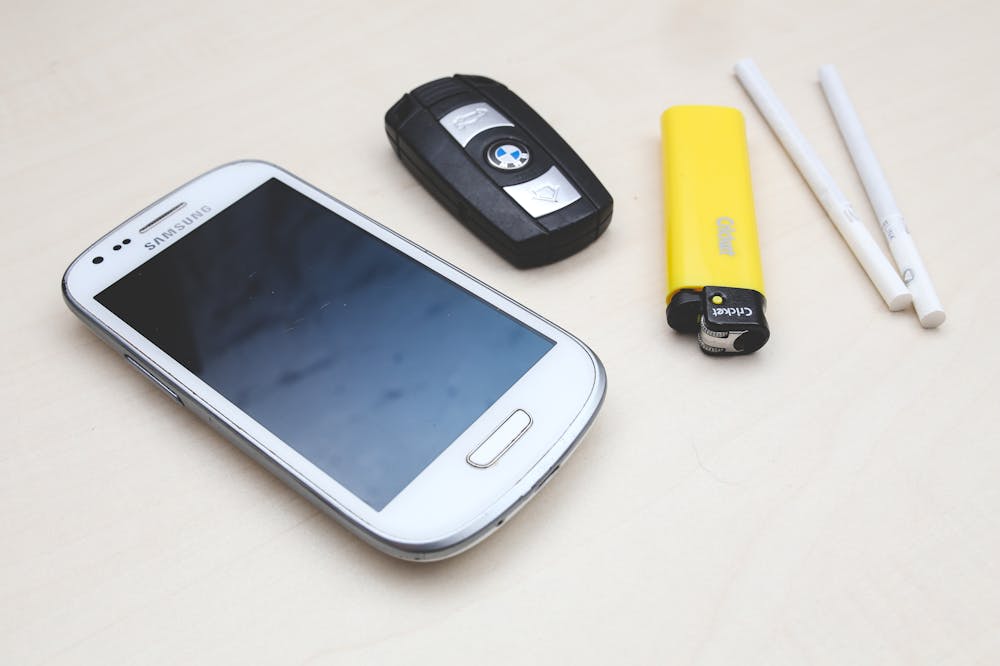
How can you tell whether you’ve succumbed to social media addiction? In the words of Dr. Paul Simeone, Lee Health’s esteemed Medical Director of Behavioral Health:
“There are no clinical diagnostic criteria for social media addiction. But if an individual excessively or compulsively uses social media platforms to improve their mood, that’s a key symptom of addiction, which may suggest dependency.”
Translation? If you’re using social media to feel better and can’t stop… you’re not just “bored.” You’re hooked.
So yeah, this isn’t just harmless scrolling. It’s psychological warfare — and you’re the product.
You’re not weak. You’re wired — by design. Here’s a quick look at the psychological traps that make social media addiction so hard to beat:
One of the biggest hooks behind social media addiction is variable rewards — the same mechanism that keeps gamblers glued to slot machines. Dr. Nancy DeAngelis, Director of Behavioral Health at Abington Memorial Hospital, puts it plainly:
“Social media platforms drive surges of dopamine to the brain to keep consumers coming back over and over again. The shares, likes, and comments on these platforms trigger the brain’s reward center, resulting in a high similar to the one people feel when gambling or using drugs.”
That unpredictable rush — the likes, the comments, the occasional viral spike — keeps your brain in a dopamine loop. You scroll. You wait. You hit refresh. And like a digital addict, you crave more, even when there’s nothing there.

Dopamine is the same chemical your brain releases when you eat, have sex, or gamble. Hence, just like gamblers in a casino, you’re drawn to the unpredictability of what awaits you with each new scroll.
Social media feeds on your fear of being left out — and it’s working.
This article in Sage Journal found that FOMO doesn’t just make you anxious — it’s a direct predictor of emotional distress and compulsive social media use.
Translation? The more you feel like you’re missing something online, the harder it is to stop scrolling… even when you know it’s messing with your head.
Ever tell yourself “just five minutes”… and then it’s 2 a.m. and you’re watching a guy make a sandwich with power tools?
That’s not accidental. According to Harvard Business Review:
“These platforms are designed to trap viewers in a social media rabbit hole: They offer bite-sized content that makes it easy to quickly consume several videos or posts in a row, they often automatically suggest similar content, and many of them even automatically start playing similar videos, reducing the potential for interruptions.”
It’s a buffet with no end — and you’re the one with no plate, just a bottomless appetite.
Humans want approval. Social media exploits it.
Every like, every comment becomes a micro-hit of self-worth. You start measuring your value in hearts and fire emojis.
No surprise then: 43% of teens felt distressed when nobody liked their posts. That’s not just insecurity — that’s engineered dependence.
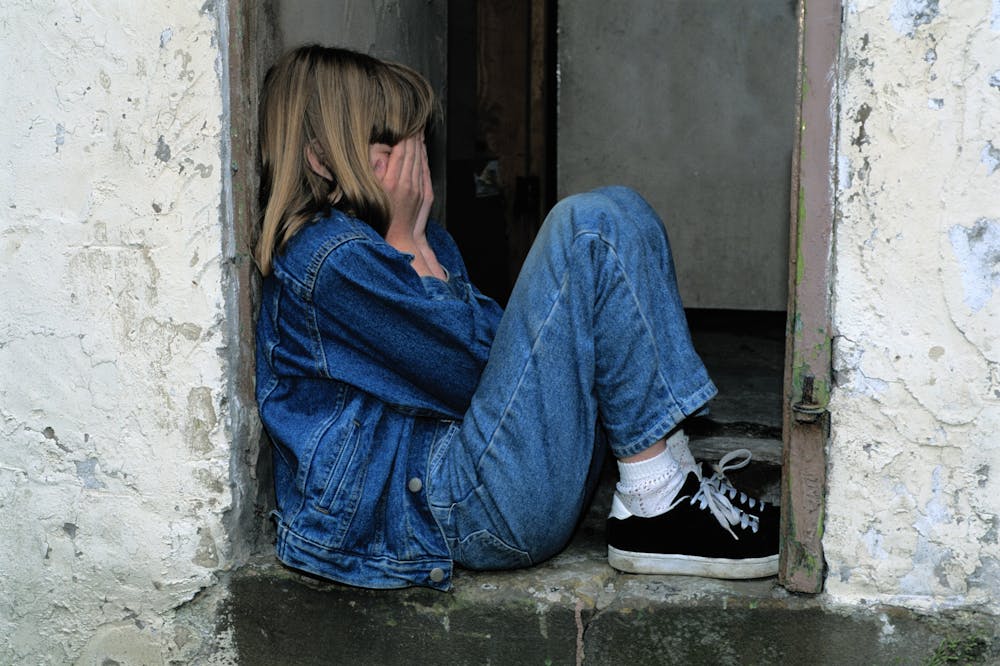
These are just a few of the hidden psychological levers driving social media addiction. Up next? Let’s call out the habits feeding the beast.
Before you can break free from social media addiction, you’ve got to face the uncomfortable truth:
How bad is it, really?
Here’s how to figure that out — without judgment, just brutal honesty (and a little hope).
Take a step back from the endless scrolling and ask the hard questions:
If any of that hit too close to home, congrats — you’re human. But it’s time to develop some real self-awareness.
Knowing your triggers is the first step to not getting played by them.
Social media doesn’t just waste time. It devours it — and then asks for seconds.
Ever wonder how many hours a week you’re giving away to mindless scrolling? And what else could you be doing instead?
Productivity is possible. So is inner peace. But you’ve got to stop letting apps hijack your schedule.
How does social media actually make you feel? Do you leave a scroll session energized and inspired — or just more anxious, more insecure, and weirdly hollow?
If it’s the latter, it might be time to get your life together — not in some TikTok-influencer way, but in a real, grounded, human way. Especially if you’ve been feeling overwhelmed lately.
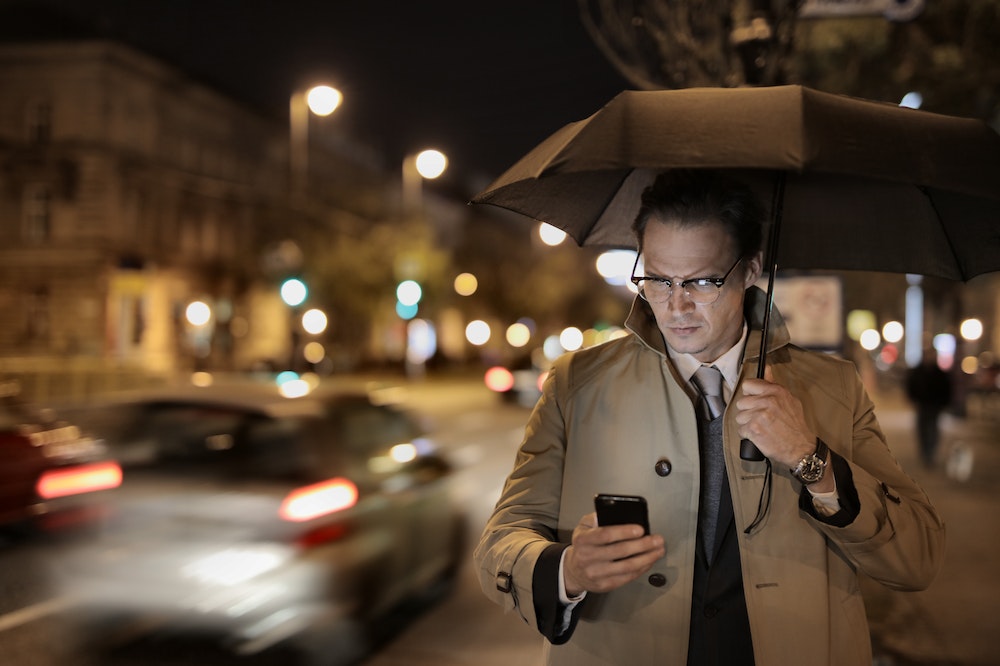
This isn’t about guilt. It’s about clarity. Once you see how your digital habits are shaping your mental health, you can finally do something about it.
If you’re serious about kicking your social media addiction, then winging it won’t cut it. You need a game plan — not just a vague intention to “use it less.”
Here are 15 proven steps to help you stop doom-scrolling and start living like a functional human again:
None of that “I just want to be more mindful” fluff. Be specific. Ask yourself:
Whatever it is, name it. Clarity is your first weapon against social media addiction.
Rome wasn’t built in a day, and neither will your social media addiction disappear overnight. You’re not going to go from scrolling three hours a day to monk-level digital discipline overnight.
Start with what’s doable. Cut 30 minutes a week. Turn off notifications after 8 p.m. Only check apps twice a day.
These small wins build momentum — and they’re a hell of a lot more effective than going cold turkey and cracking two days later in a binge of reels and regret.
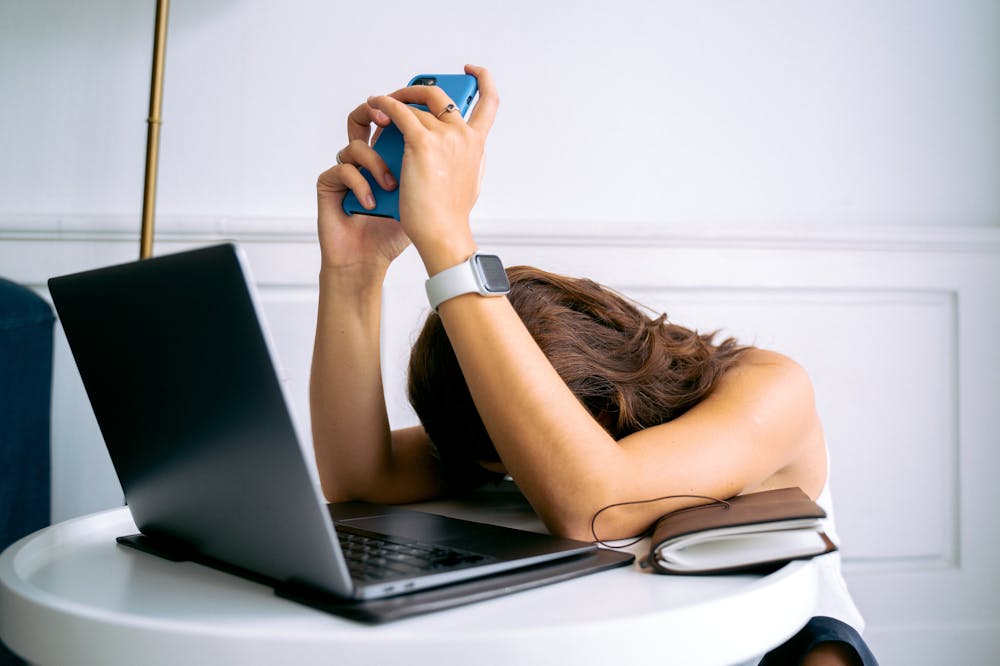
A goal without a deadline is just a wish (and let’s be honest, you’ve wished plenty). Break it down:
Each small target chips away at the habits keeping your social media addiction alive.
What gets measured gets managed — and what doesn’t gets forgotten in the dopamine haze of “just one more scroll.”
Use screen time reports. Write it in a journal. Tattoo it on your forehead if you have to.
The point is, if you don’t track your progress, you’ll have no clue whether you’re actually beating the algorithm or just convincing yourself that you are.
Treat your screen time like a budget — and stick to it like your mental health depends on it (because it does).
Block out social-media-free zones in your day. No Instagram with your morning coffee. No TikTok rabbit hole before bed. And definitely no doom scrolling in the toilet.
This isn’t punishment — it’s strategy. When you schedule your usage, you take the reins back from your social media addiction and steer your brain toward something more productive.
Like real life.
Let’s get this straight: you don’t owe the internet a play-by-play of your life.
Seriously, nobody needs to see your salad. Or your dog’s 14th nap of the day. Or the blurry concert clip that sounds like a blender full of rocks.
Here’s the truth bomb: if you feel pressured to post everything, you’re not using social media — it’s using you.
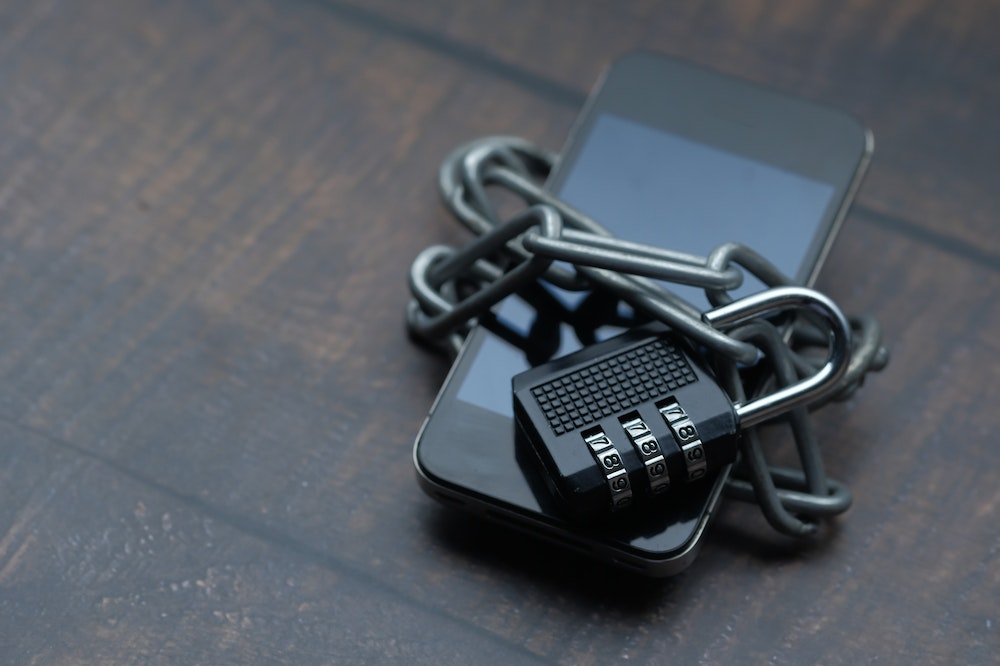
Choose what you share. Keep some moments for yourself. Your life doesn’t need an audience to be valid. That mental shift is fuel to smash your social media addiction to pieces.
You know those pings, dings, and buzzes? Yeah — they’re like digital cocaine. Notifications are little dopamine grenades that blow up your focus and suck you right back in.
Want to feel like you’ve taken back control of your own mind? Start by turning those suckers off. Every. Last. One.
Without them, you get to decide when to engage — not your phone. And that shift alone? Total game-changer.
You’ll reclaim your focus and reduce the perpetual urge to check your phone.
Seriously, if an account makes you feel like you’re not rich enough, fit enough, or living your best life, unfollow it. Or mute it. You’re not obligated to keep toxic vibes on your feed.
Social media addiction thrives on comparison — so cut it off at the source. Surround yourself with content that lifts you up, not drags you into a pit of self-loathing.
Don’t trust your willpower? Good. Because your brain’s up against billion-dollar algorithms engineered to hijack it.
Use tools like RescueTime to set hard limits. No more “just five more minutes” that turn into an hour of brain fog and thumb cramps.
If your whole day revolves around scrolling, no wonder you feel like crap.

Trade that screen for something real:
You’re not just avoiding social media — you’re rebuilding a life that doesn’t depend on it.
Mindfulness isn’t about lighting incense and chanting “om.” It’s about noticing when your fingers reach for the phone and asking, “Wait, what am I avoiding right now?”
It helps you catch the micro-moments — that itch of boredom or FOMO that feeds social media addiction.
And instead of falling into the rabbit hole, you learn to sit with it. To breathe. To not freak out. That awareness? That’s your superpower.
Look, this battle isn’t yours to fight in isolation. There are entire communities out there—forums, support groups, group chats—filled with people kicking social media addiction to the curb just like you.
You’ll gain insight, encouragement, and a reminder that you’re not crazy for wanting something better than doom scrolling.
If cutting social media completely feels like amputating a limb, cool. Don’t. But use it with purpose.
Curate your feed like your life depends on it—because, mentally, it kind of does. Follow accounts that teach, inspire, or actually make you laugh (not just make you compare your life to someone’s highlight reel).
This isn’t about quitting. It’s about using social media without letting it use you.
One real conversation over coffee beats 100 fire emojis on a story. Every time.
Focus your energy on real-life relationships. Call a friend. Hug someone. Make eye contact. Remember what it’s like to be seen without a filter.
You’ll soon find that the antidote to social media addiction isn’t digital detox—it’s real connection.

If you’re in deep, if the apps have taken over your mornings, nights, and everything in between—talk to someone. A real someone. A therapist, coach, or counselor. Whatever fits.
Getting help doesn’t mean you’ve failed. It means you’re finally serious about winning.
So, there you have it—15 battle-tested steps to break free from the grip of social media addiction and reclaim your time, focus, and peace of mind.
Let’s be real—this isn’t going to be a flawless journey. You’ll have off days. You’ll slip. That’s not failure—it’s being human.
But with clear intentions and a solid game plan, you’ll begin to navigate the noise with clarity. Each conscious step you take pulls you further from the algorithm’s grip and closer to a life driven by purpose—not pings.
As you move forward, remember: this isn’t just about quitting apps. It’s about showing up for yourself. Living with intention. Protecting your mental space. Choosing what actually matters.
So ask yourself—are you ready to stop scrolling and start living? If yes, don’t wait. Pause. Breathe. Reflect.
Then take that bold first step into a life that’s balanced, intentional, and unapologetically yours.
DISCLOSURE: In my article, I’ve mentioned a few products and services, all in a valiant attempt to turbocharge your life. Some of them are affiliate links. This is basically my not-so-secret way of saying, “Hey, be a superhero and click on these links.” When you joyfully tap and spend, I’ll be showered with some shiny coins, and the best part? It won’t cost you an extra dime, not even a single chocolate chip. Your kind support through these affiliate escapades ensures I can keep publishing these useful (and did I mention free?) articles for you in the future.
READ NEXT